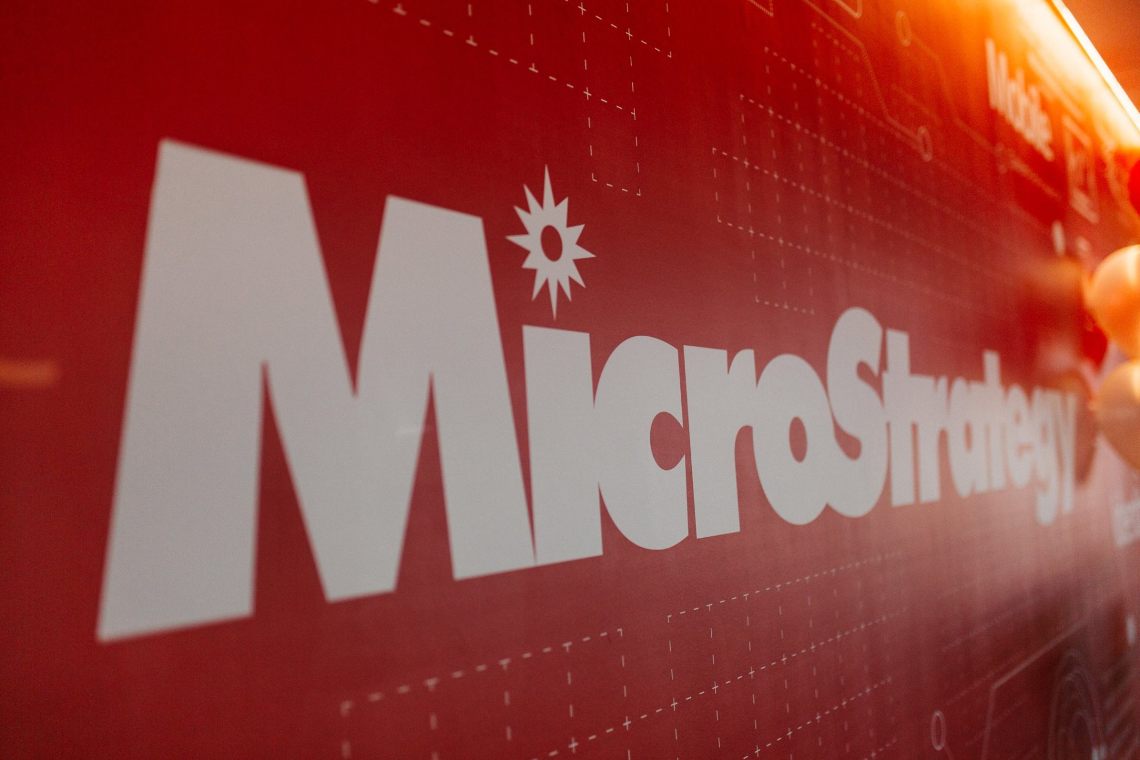MicroStrategy’s Bitcoin Strategy Propels Firm Into Top 100 U.S. Companies
21.11.2024 10:00 1 min. read Kosta Gushterov
MicroStrategy’s stock surged nearly 40% after announcing on November 18 that it would sell $1.75 billion in convertible notes to acquire more Bitcoin.
This move boosted the company into the U.S. top 100 publicly traded firms, surpassing Intel and Dell. The funds raised allowed MicroStrategy to buy an additional $4.6 billion worth of Bitcoin, with the offering expanding to $2.6 billion due to high demand.
Since 2020, the company has steadily built its Bitcoin reserves, now totaling $16.5 million. Michael Saylor’s Bitcoin-focused strategy has driven impressive stock performance, with MicroStrategy ranking 87th in the U.S. market and experiencing a 915% rise in 2024.
This aligns with a broader trend of institutional Bitcoin adoption, as companies seek to hedge against inflation and economic uncertainties.
While some analysts view the approach as visionary, others caution about the risks of a Bitcoin-heavy balance sheet, which exposes the firm to potential losses if Bitcoin’s value drops.
However, MicroStrategy’s large BTC purchases are contributing to market liquidity and stability, signaling growing confidence in Bitcoin among traditional investors. The company’s strategy may serve as a key case study for others considering Bitcoin as a core asset.
-
1
American State Bans Crypto Investments and Payments in Sweeping New Law
01.07.2025 14:33 2 min. read -
2
Billionaire Says ‘Sell Your House, Buy Bitcoin’: Fiat Collapse Is Coming
05.07.2025 12:00 2 min. read -
3
Bitcoin Climbs to $109,500: Why the Price is Up?
03.07.2025 12:00 2 min. read -
4
Why Bitcoin Is Stuck Despite Wall Street Demand
30.06.2025 12:00 2 min. read -
5
Bitcoin Mining Faces Profit Crunch, But No Panic Selling
29.06.2025 19:00 2 min. read
Corporate Bitcoin Adoption Soars: 125 Public Companies Now Hold BTC
Corporate adoption of Bitcoin is gaining significant momentum, according to Bitwise Asset Management’s latest Q2 2025 report.
PayPal Expands PYUSD to Arbitrum in Latest Blockchain Push
PayPal has expanded its stablecoin, PayPal USD (PYUSD), to the Arbitrum network, marking a key step in its strategy to integrate with faster, more cost-efficient blockchain infrastructure.
Here’s How Bitcoin Reacted to the June PPI Report
Bitcoin showed a brief bullish reaction to the June U.S. Producer Price Index (PPI) release at 12:30 UTC, but the move quickly lost steam as traders digested the broader implications of the data.
Bitcoin ETFs Record $403M Inflows as BlackRock Leads Nine-Day Streak
U.S.-listed spot Bitcoin ETFs continue to post strong inflows, recording their ninth consecutive day of net positive investment activity on Tuesday.
-
1
American State Bans Crypto Investments and Payments in Sweeping New Law
01.07.2025 14:33 2 min. read -
2
Billionaire Says ‘Sell Your House, Buy Bitcoin’: Fiat Collapse Is Coming
05.07.2025 12:00 2 min. read -
3
Bitcoin Climbs to $109,500: Why the Price is Up?
03.07.2025 12:00 2 min. read -
4
Why Bitcoin Is Stuck Despite Wall Street Demand
30.06.2025 12:00 2 min. read -
5
Bitcoin Mining Faces Profit Crunch, But No Panic Selling
29.06.2025 19:00 2 min. read


